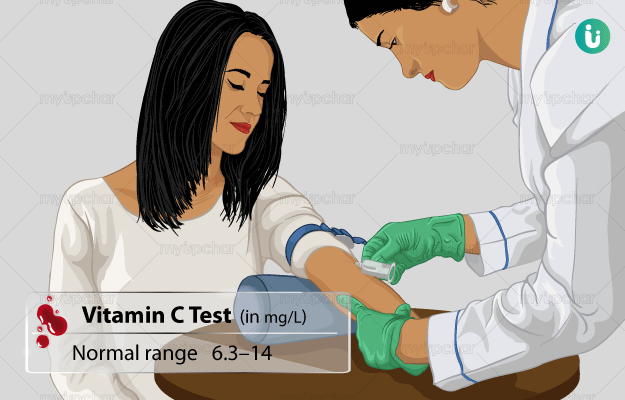What is Vitamin C test?
Vitamin C or ascorbic acid test is used to check the levels of vitamin C in blood. Ascorbic acid is a water-soluble vitamin which is present in abundant amounts in citrus fruits such as oranges, lemons, kiwi and grapefruit, and vegetables. It performs various important functions in the body:
- Being a natural antioxidant, it helps to protect body cells from free radical damage and oxidative stress. Free radicals are singlet oxygen at are produced as a result of various metabolic processes and lead to gradual deterioration of normal body functions
- Vitamin C promotes the synthesis of collagen, a protein that helps in wound healing
- It also increases iron absorption from foods and supports the immune system by protecting the person against several diseases
- It is known that vitamin C helps in preventing several types of cancers and decreases the risk of cardiovascular diseases
- Furthermore, it helps in tissue and drug metabolism and decelerates the ageing process, which makes one look younger














